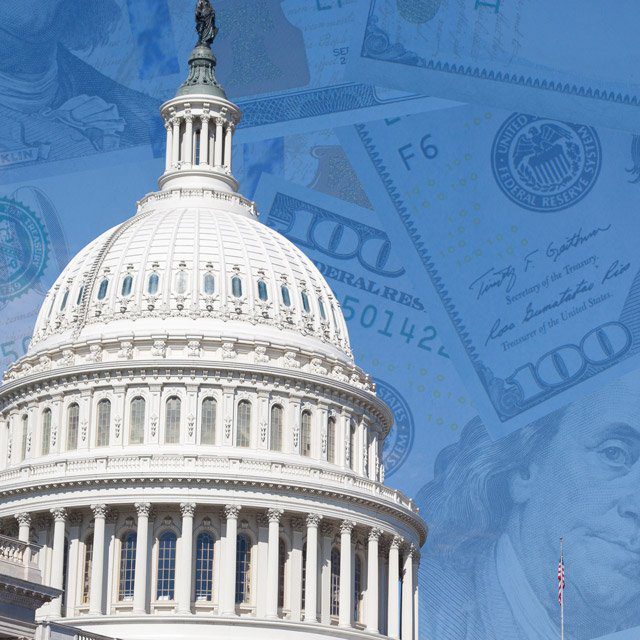2 Ways the Inflation Reduction Act Hits the Wealthy

What You Need to Know
An IRS budget boost would arm agents with new technology to boost the audit rate, says Bush.
Two changes to corporate taxes in the Senate bill affect stock valuations, Bush said.
Greg Valliere wonders where the new IRS employees will come from given the tight labor market.
A beefed-up Internal Revenue Service enforcement division along with corporate tax changes are two ways the Inflation Reduction Act, passed by the Senate Sunday, will hit wealthy taxpayers, according to Jeff Bush of The Washington Update.
Under the Senate bill, which passed by a 51-50 vote and will be taken up by the House on Friday, the IRS would get a budget boost of $80 billion over 10 years — a big jump from the annual IRS budget of $12.6 billion.
The increase, according to Bush, will allow the IRS to hire more agents, “arming them with new technology focused on increasing the audit rate substantially on those earning more than $400,000,” Bush told ThinkAdvisor on Monday.
Audits exist, Bush said, “to ensure higher tax-paying compliance by those audited and those afraid they might.”
Greg Valliere, chief U.S. policy strategist for AGF Investments, said Monday morning in his Capitol Notes email briefing that “virtually all experts believe the bill will dramatically increase the need for labor (thousands of employees for the IRS and thousands to retrofit). This raises the issue of where the workers will come from. The extraordinarily tight labor market may revive an immigration reform debate next year.”
Two changes to corporate taxes in the Senate bill affect stock valuations, Bush said.
“The 15% minimum book profit tax was a workaround for [Sen.] Kyrsten Sinema’s commitment not to raise tax rates on individuals or corporations. But, it has the perverse side effect of penalizing companies for using tax deductions Congress specifically wrote into the tax code, tax deductions designed to incent corporations to invest in their companies,” Bush said.
“A corporate ‘AMT’ [alternative minimum tax] will disproportionately hurt certain businesses and not others, leaving the Democrats open to the attack of ‘picking winners and losers,’” Bush stated. “Depending on the industry, sizable tax credits and investments will support corporate demand, especially in clean energy.”
Stock Buyback Tax
The bill’s 1% stock buyback tax “may impact valuations,” Bush said. “While often buybacks are couched as a corporation trying to boost their stock price, they are more often a sign of corporate health. The corporation sees no better investment in the marketplace than its own shares. The 1% tax tweaks a corporation’s analysis of when and if a buyback is in its best interest.”




